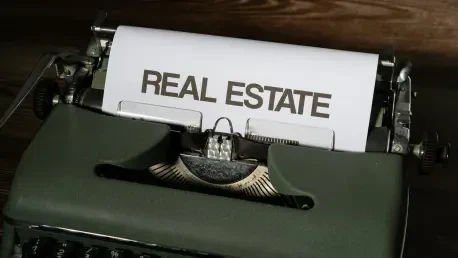In recent years, Baltimore’s real estate landscape has been hit hard by fraudulent activities led by ABC Capital, a Philadelphia-based real estate investment firm. Charged with the devastating responsibility of altering the city’s property market, ABC Capital became notorious for misleading international investors. Marketing over 1,000 houses in some of Baltimore’s most distressed neighborhoods, the firm promised renovations and tenant placements that were never fulfilled. As allegations of operating a scheme reminiscent of Ponzi activities emerged, investors from around the globe suffered significant financial losses. The ripple effects of these deceptive practices extend beyond the firm’s investors, affecting title companies intertwined in its dealings, shaking the very foundation of regulatory oversight in the area, and manifesting a cautionary tale at nearly every turn.
Fallout from ABC Capital’s Collapse
The abrupt collapse of ABC Capital disrupted Baltimore’s real estate continuum, unraveling hidden financial turbulences and exposing systemic weaknesses. Known for promoting numerous properties to foreign buyers without delivering on commitments, the firm inflicted unprecedented harm on the community’s credibility and vitality. It was not just investors who faced dire consequences, but also local businesses engaged with property transactions, showcasing deep vulnerabilities within the sector. The detrimental aftermath underscores significant gaps in regulatory oversight, leaving many stakeholders grappling with financial losses and tangled legal battles. The unrecorded deeds and incomplete searches for liens further fueled chaos, manifesting as a wake-up call to the industry on the necessity for meticulous process adherence, constant oversight, and reliable interventions to safeguard against unscrupulous conduct.
The Role of Title Companies
Amid the turmoil, title companies such as Masters Title and Castle Title found themselves mired in the epicenter of the crisis. These entities, crucial in facilitating ABC Capital’s numerous property deals, experienced severe financial repercussions and reputational damage. Masters Title, stripped of its license due to alleged mismanagement of funds and negligent transaction oversight, ultimately shuttered its operations in 2024, amplifying the financial chaos it was already facing. Castle Title endured a similar fate, thrust into ongoing litigation amid allegations of fraudulent transactions exceeding $1 million. Investors claim that Castle Title was an accomplice in ABC Capital’s widespread deceit, although the company insists on being victimized by falsified documentation and other illicit practices outside its knowledge. Despite efforts to redirect escrow funds to affected investors, the legal entanglements speak to the complexities inherent in discerning liability amidst fraudulent efforts.
Regulatory Incompetence and Legal Battles
The crisis unearths glaring failures in regulatory scrutiny, pointing to missed opportunities in detecting and mitigating deceitful real estate practices. Legal experts label the pandemonium as an “extinction event,” emphasizing the irreversible damage sustained by stakeholders within Baltimore’s property market. Despite ABC Capital’s strategic bankruptcy filing in 2022, effectively insulating the company from mounting lawsuits, litigation and investigation on its fraudulent undertakings persist. Among the more vocal critics is Pennsylvania’s Attorney General, bringing attention to ABC Capital’s deceptive legacy and regulatory pitfalls spanning state lines. The ongoing scrutiny, regardless of bankruptcy safeguards, indicates a pervasive need for enhanced regulatory mechanisms that guard against manipulation and institute accountability, especially centered on vulnerable communities and distressed markets now struggling to regain sense and stability.
The Human Element
As the torrent of financial repercussions unfolds, scrutiny falls on individual figures like ABC Capital’s former owner, Jay Walsh. Despite being convicted on minor charges related to contractor licensing violations, Walsh continues his operations remotely, underlining the ease with which individuals evade meaningful consequences. Residing in Aruba and seemingly unperturbed by his company’s tarnished legacy, Walsh continues dispersing real estate advice online, prompting discussions on the ability of supposed perpetrators to sidestep accountability. This reality begs a more serious evaluation of personal culpability, exploring the depth of complicity and consequences to adequately address these breaches. It brings into focus how individual actions feed broader fraudulent systems, underscoring the need for vigilance at every level, from regulatory oversight to corporate accountability and individual integrity, all critical to reinforcing market trust and stability.
Broader Lessons and Consequences
The multifaceted crisis engulfing Baltimore’s real estate sector stands as a grave reminder of the latent dangers in unchecked fraudulent practices, especially within vulnerable market segments. Echoing through precincts and policy tables alike, this scenario highlights the interconnected nature of deceptive schemes and the vast repercussions thereof, prompting broader discussions on the imperative for diligent and consistent oversight. Through thorough documentation and proactive engagements, the integrity of real estate markets must be preserved to ensure protection for investors and stakeholders alike. Baltimore’s experience elucidates that while individual malfeasance can trigger widespread disruptions, organized and aware collective action can preclude future breaches. In learning from these episodes, a path forward should emphasize transparency, accountability, and rigorous checks to keep deceitful practices at bay and maintain confidence in the housing realm.









